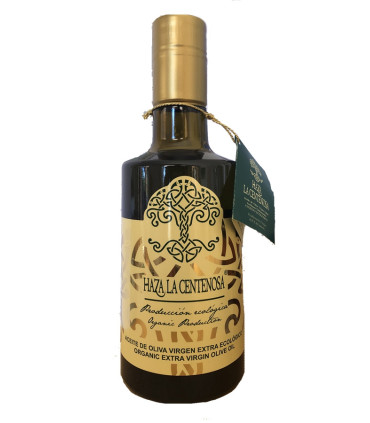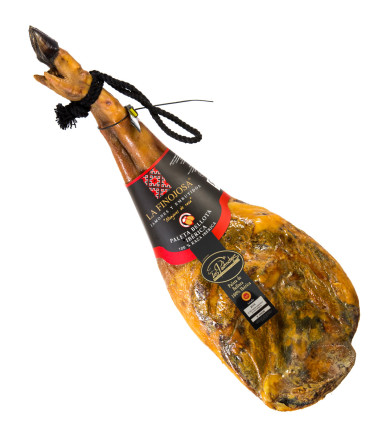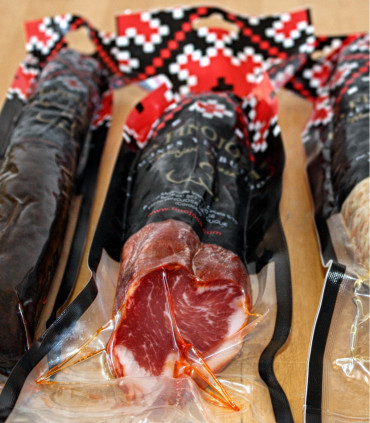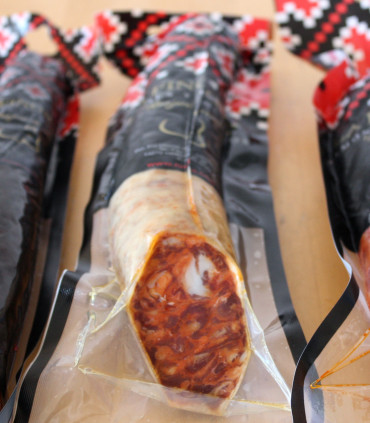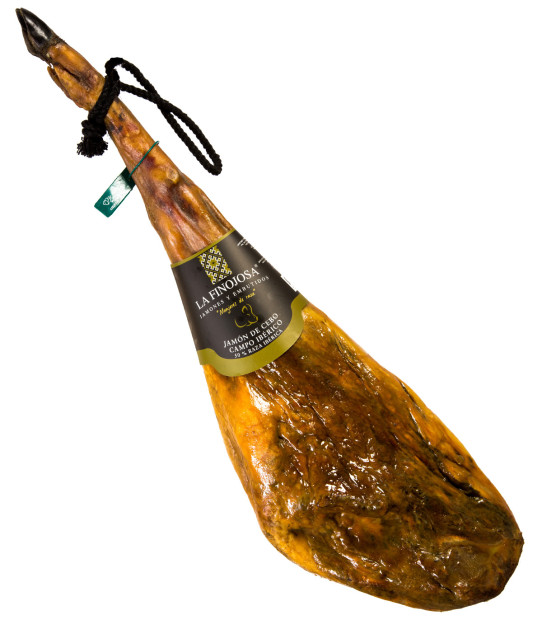
Cereal-Fed Iberian Ham - Spanish taste - La Finojosa

Iberian cereal-fed ham, from Los Pedroches - Córdoba. Made from 50-75% Iberian pigs with a mixed diet based on acorns, herbs and supplements (cereal). Green label.
The Cereal-fed Iberian hams are very good value for money, a nice alternative to the more expensive acorn-fed ham.
They have a shorter maturing period than bellota hams: also from Iberian pigs, these hams have been cured for almost 2 years in the cellars of La Finojosa.
Store in a cool, dry place, away from light.
Weight of ham: from 7.5 kg
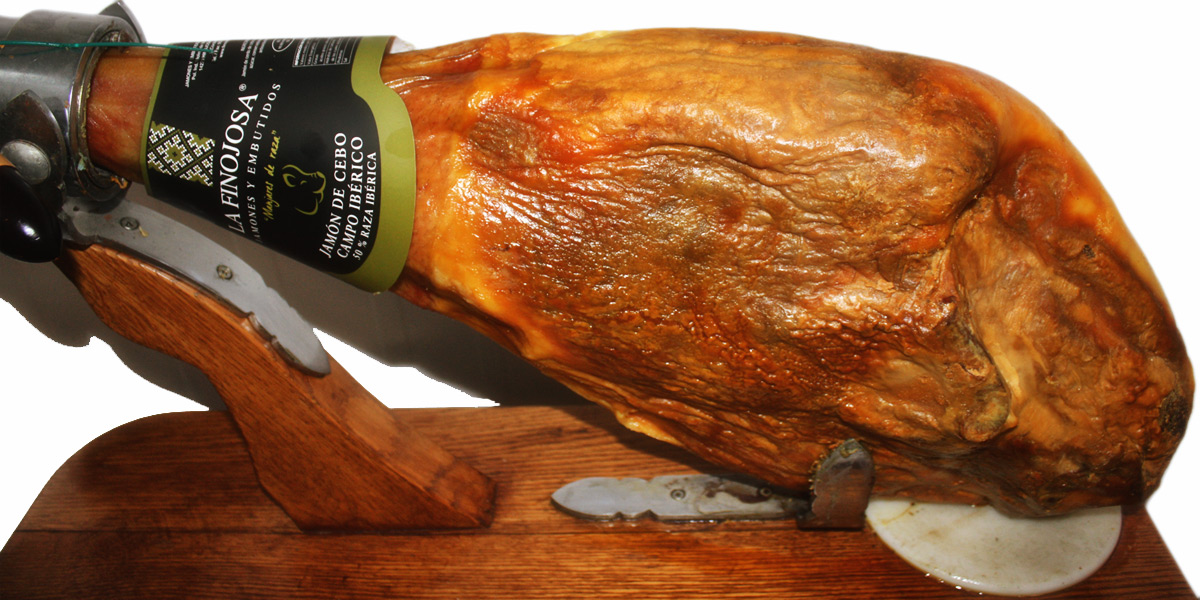
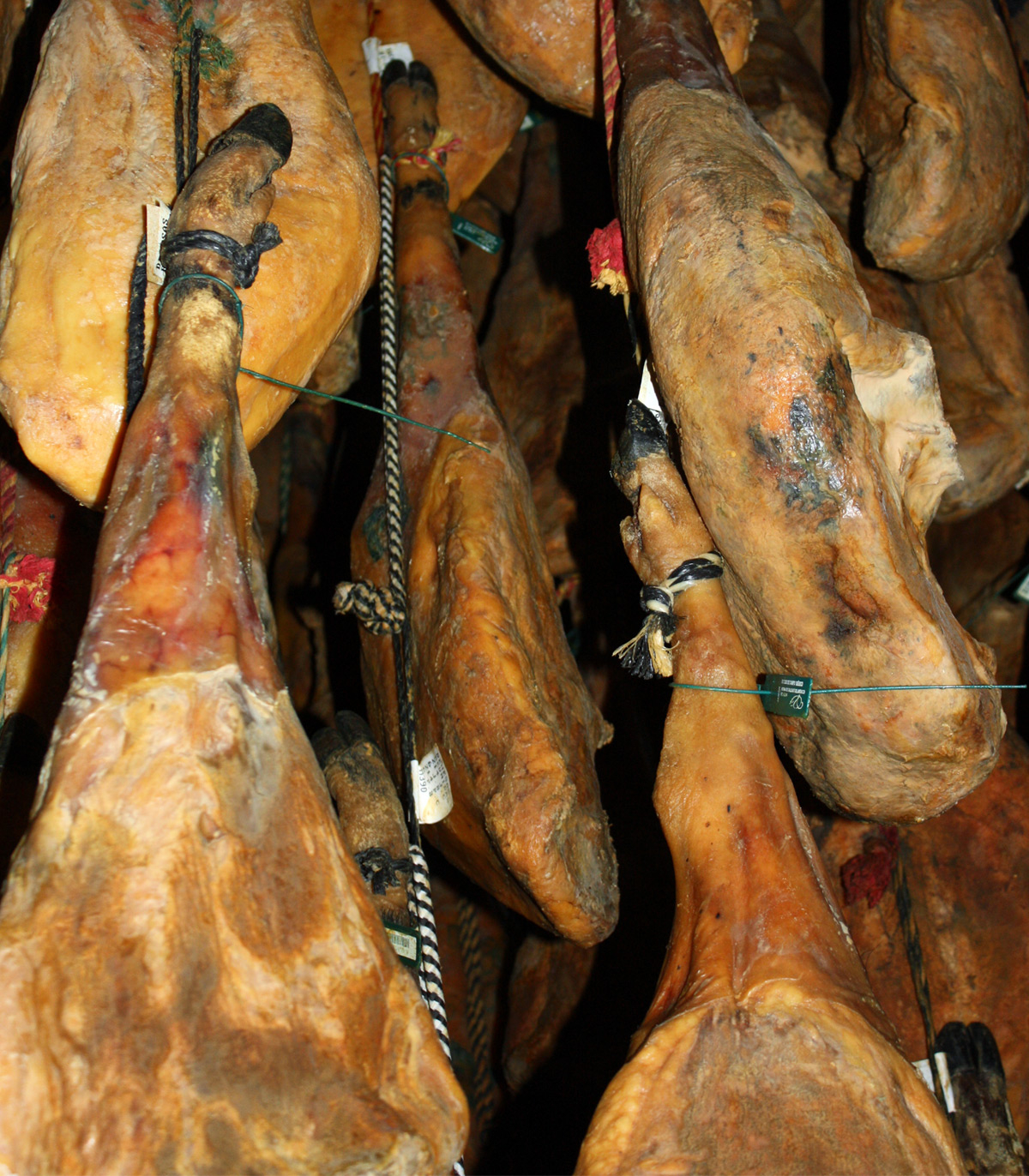
Pigs classified as: "De cebo de campo" ("pasture-raised").
The Cebo de Campo system can be used in both intensive and extensive farming operations, as explicitly acknowledged in Royal Decree R.D. 4/2014.
“De cebo de campo”: These are animals that, although they may have benefited from resources in the dehesa (oak woodland pasture) or open fields, have been fed with feed made primarily of cereals and legumes. They are raised in extensive or outdoor intensive farms, which may have partially covered areas, in accordance with Article 7 of the regulation.
According to Spanish legislation (Royal Decree 1221/2009 of July 17, which sets the basic regulations for extensive pig farming), an extensive farming system is defined as follows:
1 - Extensive farming system: based on the commercial use of pigs within a continuous and defined area, with a regulated stocking density that must never exceed, in the case of fattening pigs between 50 and 150 kg, 17.14 pigs per hectare. If there are other pigs (breeding animals) or other species, the density must be recalculated.
2 - The animals' diet must rely primarily on direct use of agroforestry resources throughout the year, mainly through grazing. This can be complemented with plant-based raw materials and feed, but must remain the core of the fattening phase, ensuring a strong link to the land both economically and environmentally.
There is indeed such a thing as extensive Cebo de Campo, just as there is an intensive version. Both coexist under the current regulation. However, this distinction is not reflected on the label, and the only way to be sure you’re getting meat from truly extensive farming is to buy "Cebo de Campo" certified by a Designation of Origin (D.O.) that only allows extensive production.
And this isn’t about bias — it’s simply the only certification system that guarantees it (aside from personal trust in your supplier, which is another matter entirely).
A product labeled simply as “Cebo” is always intensive, with more than 100 pigs per hectare.
All farms that fall between 17 pigs/ha and the 100 permitted by regulation are considered intensive operations, even though they may be labeled as "Cebo de Campo."
But does that really make sense, when by definition, in an intensive system, pigs consume none of the natural resources of the land and are fed exclusively with processed feed?
The flavor difference between an Ibérico ham from a pig raised extensively in a bare enclosure with no grass, and one that grazes on a variety of wild herbs in the dehesa — even if both receive the same feed — is tremendous.
Let’s not forget that wild herbs are essential to producing an exceptional bellota ham: without herbs, the quality drops significantly.
And conversely, a pig raised extensively in the dehesa, even if it doesn’t eat acorns but does graze on wild herbs alongside good feed, will produce a Cebo de Campo ham that’s incomparable to one raised in a barren enclosure or under extreme summer heat, even with identical feed.
That’s why it’s so important to know the slaughter date and the region where the pig was raised and fattened for Cebo de Campo production.
Product details
- Brand
- La Finojosa
- Reference
- 0010008HIN
- Label
- Green
- Appellation of origin
- Los Pedroches
- Place
- Hinojosa del Duque
- Conditioning
- Whole piece
 fr
fr en
en es
es
